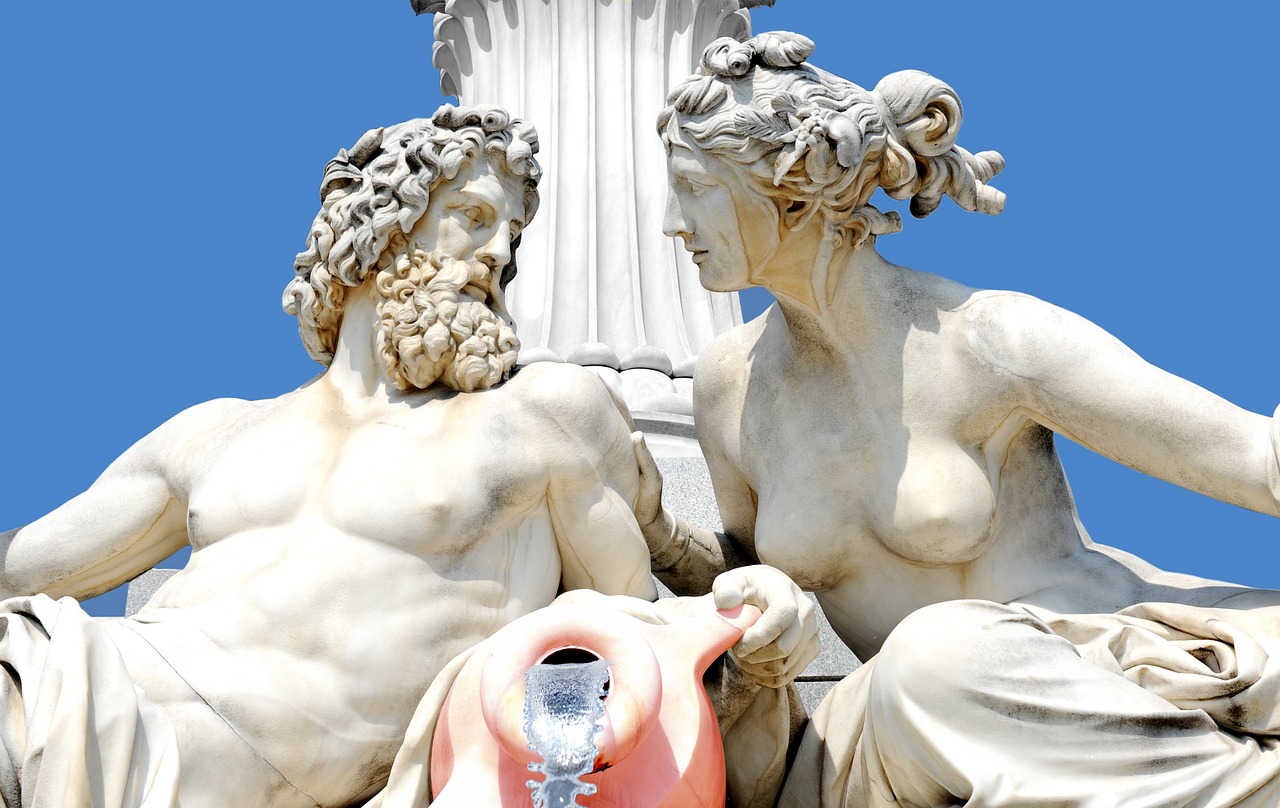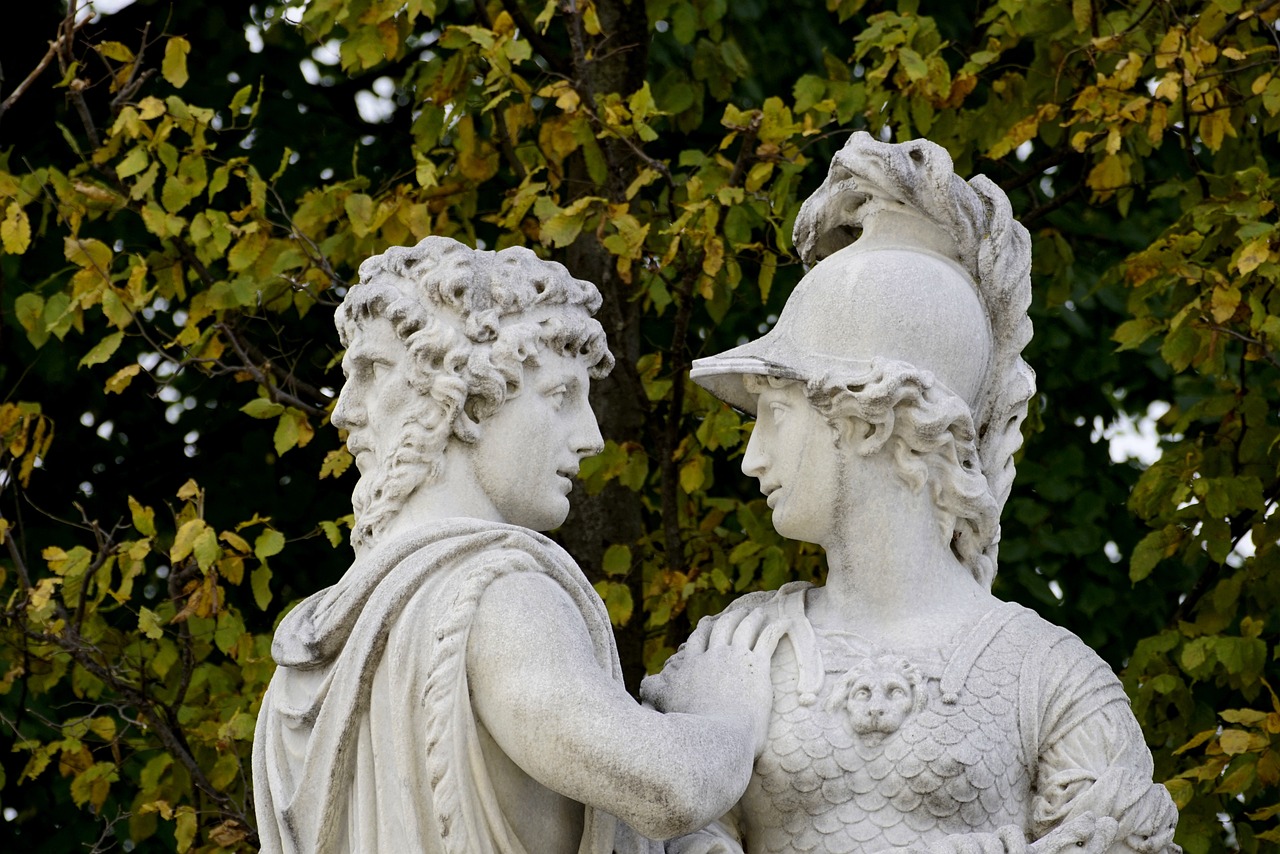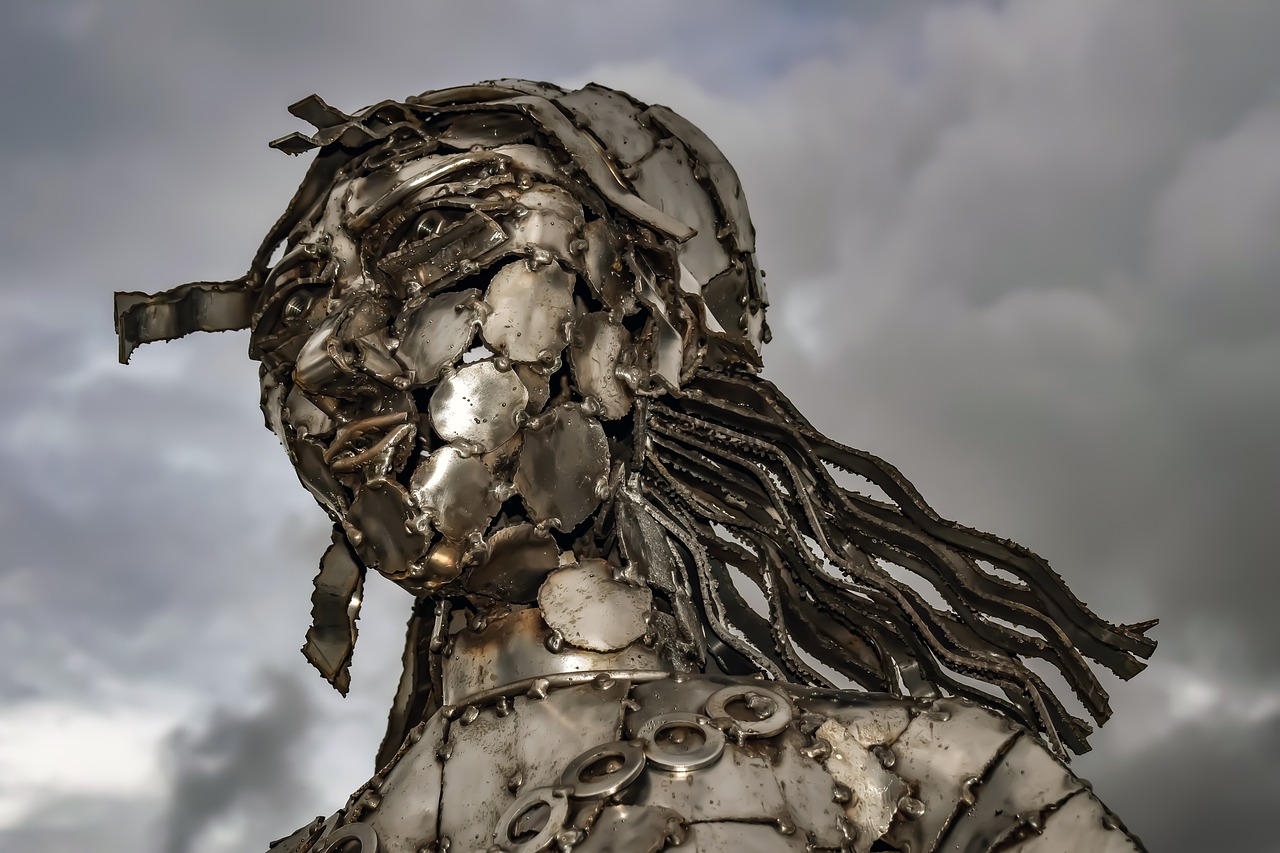Tag: Greek mythology
-
Uranus: The Primordial Sky God in Greek Mythology Uranus (Ouranos) is recognized as the primordial deity of the sky in Greek mythology. The ancient Greeks conceptualized the sky as a vast dome of solid brass adorned with stars, its edges resting upon the farther extremities of the flat earth below. Thus, Uranus personifies the sky…
-
Selene: The Moon Goddess of Greek Mythology Selene, known in Greek mythology as the Titan goddess of the moon, is a captivating figure often depicted gracefully riding sidesaddle on a horse or controlling a chariot pulled by two winged horses. Her head often features a radiant crown that embodies her lunar essence or a crescent…
-
Ares: The Olympian God of War Ares, recognized as the powerful Olympian deity presiding over war, embodies the notions of battle fervor, bravery, and societal order. In ancient Greek art, representations of Ares typically highlight him as either a seasoned, bearded warrior equipped for combat or a youthful figure without a beard, adorned only with…
-
Greek mythology encompasses a rich tapestry of tales about deities, heroes, and the customs of ancient Greece, spanning back to classical antiquity. The inherent fictional qualities of these myths were recognized by critical thinkers such as Plato, who lived during the 5th to 4th centuries BCE. Despite this, the myths were traditionally embraced as factual…
-
The ancient Greek legend of Jason and the Golden Fleece is a prominent tale of heroism, filled with themes of betrayal, revenge, and ultimately tragedy. The saga unfolds with Jason’s Uncle Pelias committing regicide by murdering Jason’s father, the rightful King of Iolkos, and seizing control of the throne. To ensure Jason’s safety, his mother…
-
Chiron: The Wise Centaur of Greek Mythology Chiron, known as Kheiron in Greek, was the most esteemed and knowledgeable among the Kentauroi, a race of centaurs hailing from Thessaly, notable for their equine characteristics. Unique among his brethren, Chiron was the immortal offspring of the Titan Kronos (Cronus) and the nymph Philyra, making him a…
-
An Overview of Greek Mythology Greek mythology encompasses a rich tapestry of tales revolving around gods, heroes, and ancient Greek rituals that date back to Classical antiquity. The recognition of mythical narratives as partially fictional was highlighted by philosophers like Plato during the 5th to 4th centuries BCE. Nonetheless, these myths were largely embraced within…
-
Zeus: The Supreme Olympian God Zeus, traditionally known as Jupiter or Jove, holds the prominent title of King of the Gods, governing the sky, weather, order, destiny, and fate. Often represented as a stately man with a robust physique and a dark beard, his iconic symbols include a lightning bolt, a regal scepter, and an…
-
Zeus, the foremost god in ancient Greek mythology, occupied a predominant role as a deity of the sky and weather. His identity closely parallels that of the Roman god Jupiter. The etymology of his name may derive from the ancient Hindu deity Dyaus, known from the sacred texts of the Rigveda. Revered as the orchestrator…
-
Ares, in the realm of Greek mythology, is recognized as the god of war, embodying the essence of battle and its brutal realities. Unlike Mars, his Roman equivalent, Ares did not enjoy widespread reverence among the Greeks. He was seen as a less favorable figure, representing the darker aspects of conflict and bloodshed. According to…










